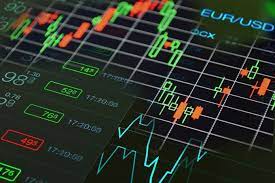
Assessing the Different Types of Forex Trading Platforms
When it comes to trading in the forex market, one of the most critical decisions you’ll make is choosing the right forex broker. A Forex broker is a financial company that facilitates trading in foreign currencies. With a vast selection of forex brokers in the market, it can be challenging to find the right one for your trading needs. In this blog, we will be comparing different types of forex brokers to help you make a more informed decision.
1. Market Maker Brokers
Market maker brokers are forex brokers that make their money by offering you a buy and sell price on a currency pair and then making money on the spread in between the bid and ask. Most market maker brokers set a fixed spread, which means that they can earn additional profits by widening the difference between the bid and ask price. Market maker brokers are best for traders who don’t trade very frequently and are holding positions for more extended periods as the spreads tend to be higher overall.
2. ECN Brokers
ECN (Electronic Communication Network) brokers are brokers that connect traders directly to a global network of liquidity providers consisting of banks, financial institutions, hedge funds, and other traders. In essence, an ECN broker eliminates any conflict of interest between the broker and the trader. ECN broker spreads are typically lower, and traders can expect fast executions and an overall better trading experience.
3. STP Brokers
STP (Straight Through Processing) brokers are forex brokers that act as a middleman between the trader and the liquidity provider. STP brokers will typically offer traders either fixed or variable spreads. STP brokers are best for traders who aren’t interested in trading large sums of money. These brokers are ideal for traders who are just starting out because they offer smaller minimum trade sizes.
4. Dealing Desk Brokers
Dealing desk brokers are forex brokers that act as intermediaries between the trader or the liquidity provider. Dealing desk brokers typically make their money from spreads and take the opposite side of a trader’s position. This type of broker earns money from traders’ losses, making conflicts of interest quite common. Dealing desk brokers tend to be more expensive and have narrower spreads.
5. NDD Brokers
NDD (No Dealing Desk) brokers are Forex broker that, by definition, have no dealing desk. Such brokers have no conflict of interest with their clients, and they do not take the other side of their trades. Instead, these forex brokers pass all client trades straight through to the liquidity providers. One advantage of trading with an NDD broker is that you’ll typically enjoy better spreads and faster trade execution.
Ultimately, the type of forex broker best for you depends on your trading style and preferences. It’s crucial to do your research and weigh the pros and cons of each type of forex broker before choosing one that fits your needs and budget. When choosing a forex broker, look for transparency, regulation, reputation, and the number of years they’ve been in business. By doing so, you’ll have the right forex broker for your trading needs.